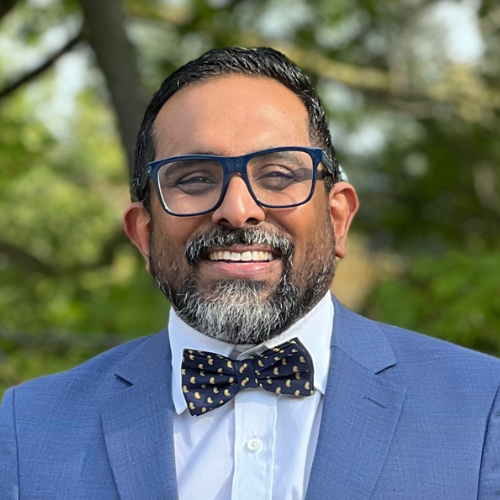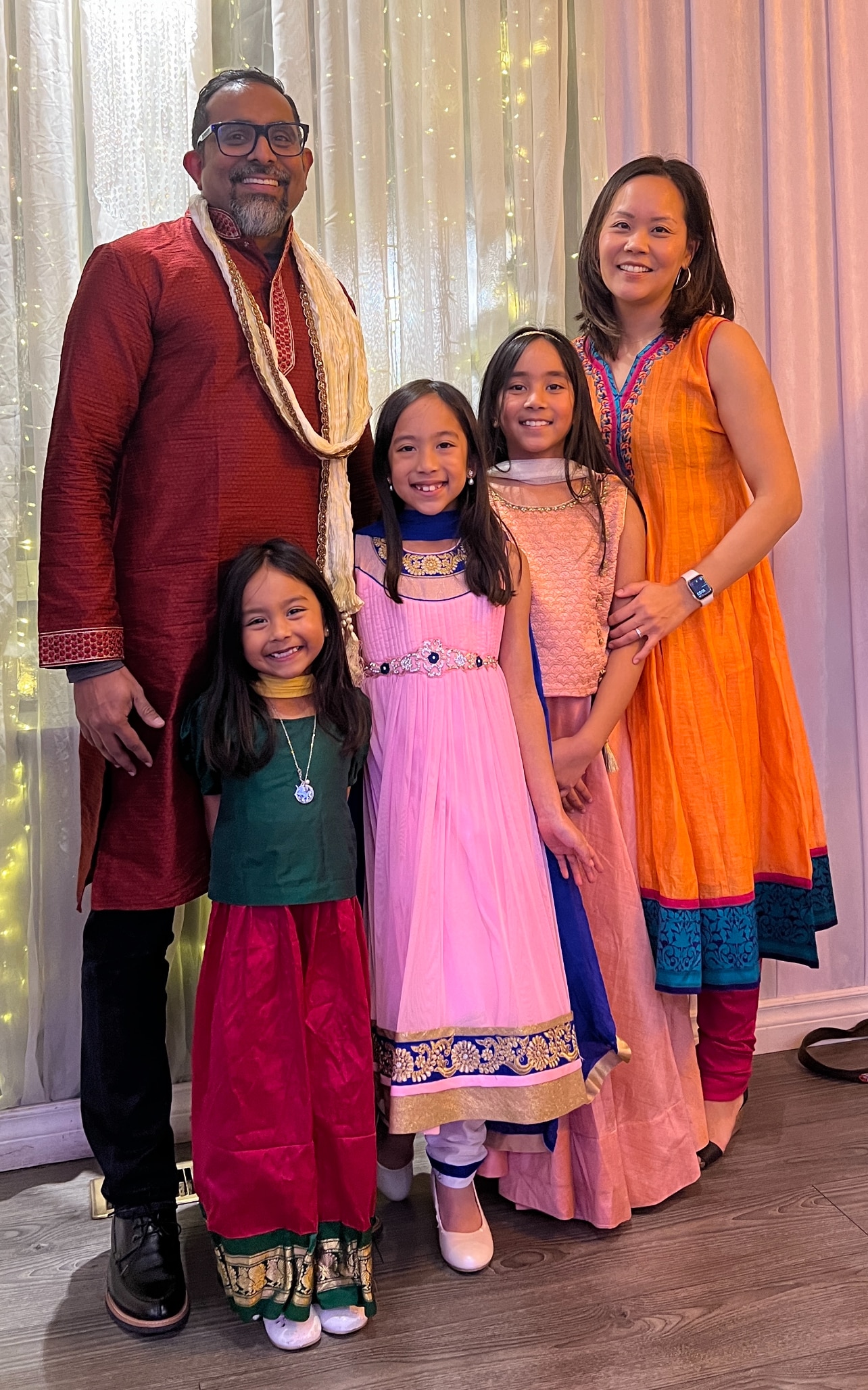DR. SAMUEL WILLIAMS
Assistant Professor of Counselling Psychology, Providence Seminary

ABOUT SAMUEL
Samuel Williams was born and raised in Chennai, India. After obtaining a Bachelor of Business Administration from the University of Madras, Samuel worked briefly for a non-profit organization in India. He immigrated to Canada in 2001 and earned a MDiv in Pastoral Ministry at Tyndale Seminary, STM at Regis College (U of T) and a PhD in Human Relationships, with a focus on Spiritual Care and Psychotherapy, at Wilfred Laurier University. Dr. Williams is a Registered Psychotherapist and a Couple and Marriage Therapist, and his teaching and research interests include integration of theology and psychology, church and mental health, couple and marriage therapy, cross cultural therapy, therapeutic relationships and the person of the therapist.
Q: Before arriving at Providence, where did you live and what did you do?
I have made Toronto home since 2001. I love the rich and vibrant multicultural context of Toronto and enjoy working with people from diverse cultural backgrounds. From my earlier years, I wanted to be a computer engineer like many of my family members. But God had plans, far more than I could have ever thought or imagined. By God’s grace, my academic training in theology, spiritual care, psychotherapy, marriage and family therapy and pastoral ministry, as well as my multicultural, multidenominational, and multigenerational experiences in church, parachurch and agency contexts for the last 25 years have prepared me to be an intentional theologian and reflective and compassionate practitioner.
Q: What about Providence was appealing to you?
A conversation I had with Dr. Jeff Anderson – Dean of the Theological Seminary – piqued my interest in Providence. I soon found myself wanting to be a part of the diverse, dynamic and growing Counselling Psychology department at Providence. Not only that, I found the Providence community’s warmth and hospitality appealing. I also found the faculty and staff to be down-to-earth, fun, relational and caring. Moreover, Providence’s commitment to teaching people to grow in knowledge and character for the glory of God, flourishing of the Church and the good of neighbours, resonates deeply with me.
Q: What is something you hope people will learn from your classes?
I hope students will learn the importance of safe use of self and self-care for effective leadership and service. A student’s most valuable instrument is the student’s own self. While critical thinking, academic acumen and counselling skills are important, a student’s own self, including their self-awareness and their own personal engagement in their contexts, contributes to effective leadership and service. As part of safe use of self, students must intentionally engage in personal reflection on their positive and negative experiences and its impact on their personal and professional life. How I teach and how I relate in the class, models to my students, how safe use of self and self-care is embodied in the here and now.
Q: What is your teaching philosophy?
I value the teacher-student relationship and approach it with the presupposition that God is relational, is involved in human life and invites me to thoughtfully, intentionally and carefully be a part of what he is doing in people’s lives. My favourite teachers have connected my discipline to my own contexts and the wider world and inspired curiosity in me. They invited me to share my thoughts and ideas even when they were not fully formed. In the same way, I hope to create a welcoming, safe and bold space, where learners think critically, share their experiences, biases, beliefs, thoughts and ideas openly, problem solve collaboratively and challenge preconceived ideas respectfully. My job as a teacher is not only to help my students to get a good grasp of the discipline I am teaching, but also to grow as a follower of Jesus Christ and to connect their discipline and profession to the glory of God, flourishing of the Church and the good of neighbours.
Q: What do you like to do outside of work?
Currently, I enjoy volunteering my time as a board member, both with the Evangelical Covenant Church and Interserve Canada. I am committed to having meaningful conversations with local churches about faith and mental health and help reduce mental health stigma in congregations across cultures. When I am not working or volunteering, I spend most of my time with my wife Angie and my three daughters, Joelle, Jolene and Joslyn. They continue to teach me what it means to be present in the here and now and enjoy the moment. I also like to read, contemplate, practice gratitude, listen to podcasts, watch movies and cricket (India’s popular sport), host people, travel and experience different ethnic food with my family.

